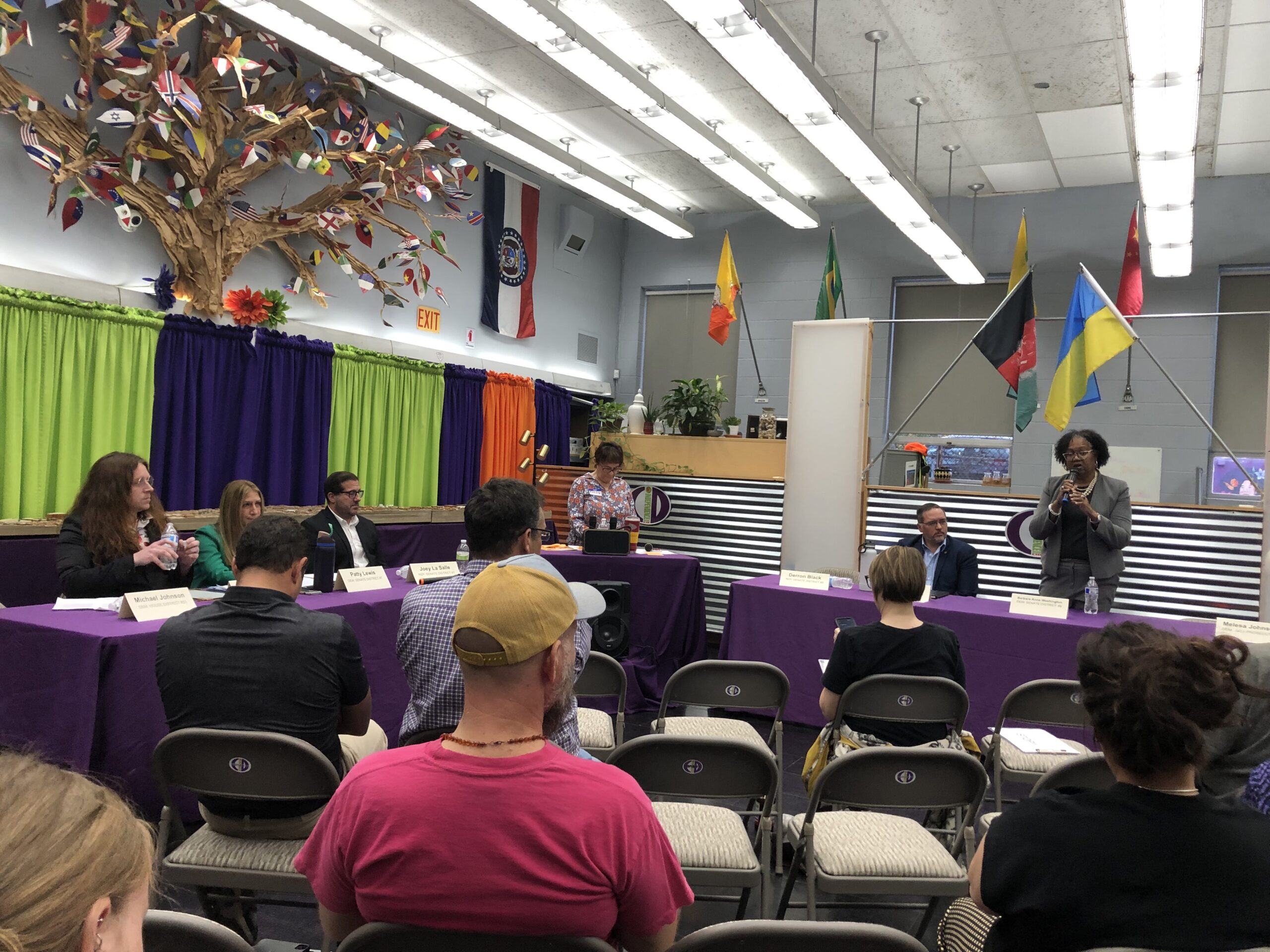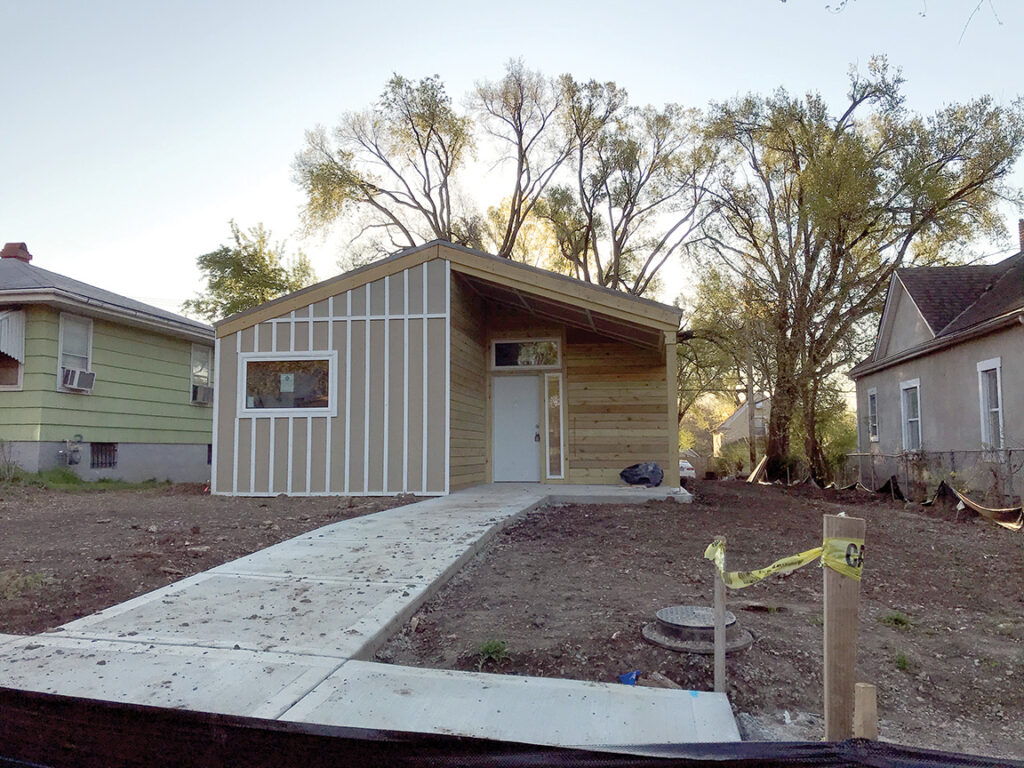
Abby Hoover
Managing Editor
Mattie Rhodes Center’s Northeast Alliance Together (NEAT) is anticipating the completion of its first net zero single family affordable home in the 100 block of North Topping
Partners broke ground on the Indian Mound neighborhood project last August, just down the street from Mattie Rhodes’ Northeast location, in a diverse, tight-knit and eclectic neighborhood threatened by a shortage of quality, safe and affordable housing.
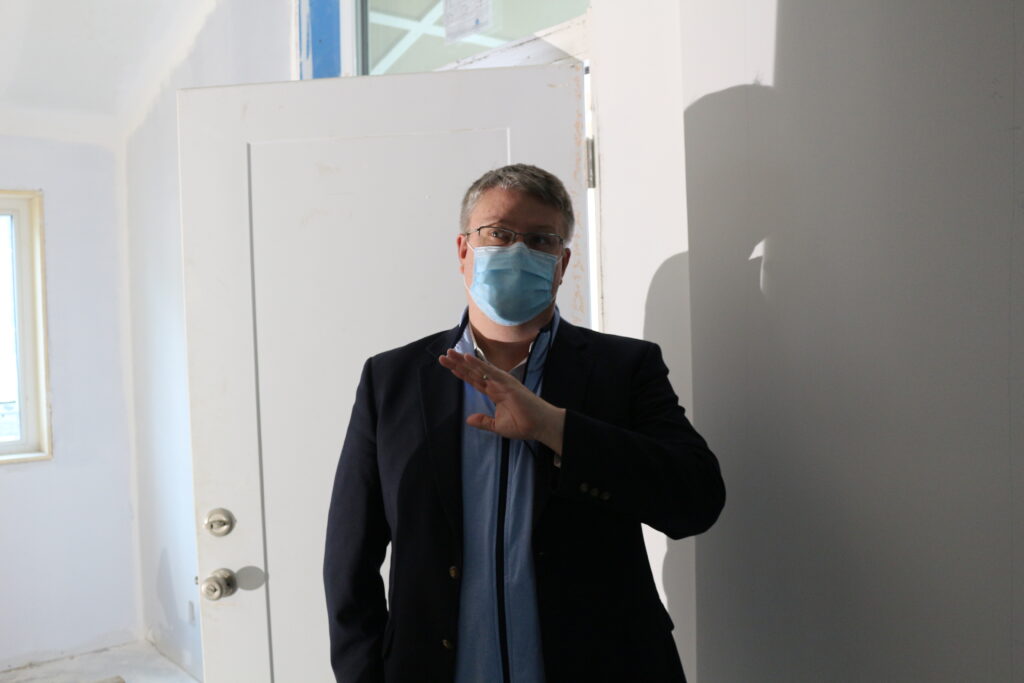
The design was developed in collaboration with Kansas State University (K-State) and CoBuild, led by Tate Williams, a local contractor focused on affordable housing.
K-State’s School of Architecture created a thoughtfully designed, healthy, energy efficient and affordable home that will help a household thrive while also investing in the neighborhood and strengthening the community in the long term.
“This home is more than just a new house,” said Mattie Rhodes Center CEO John Fierro. “Affordable housing improves the overall quality of life for neighborhood residents leading to better health, financial sustainability, population diversity and reduced crime.”
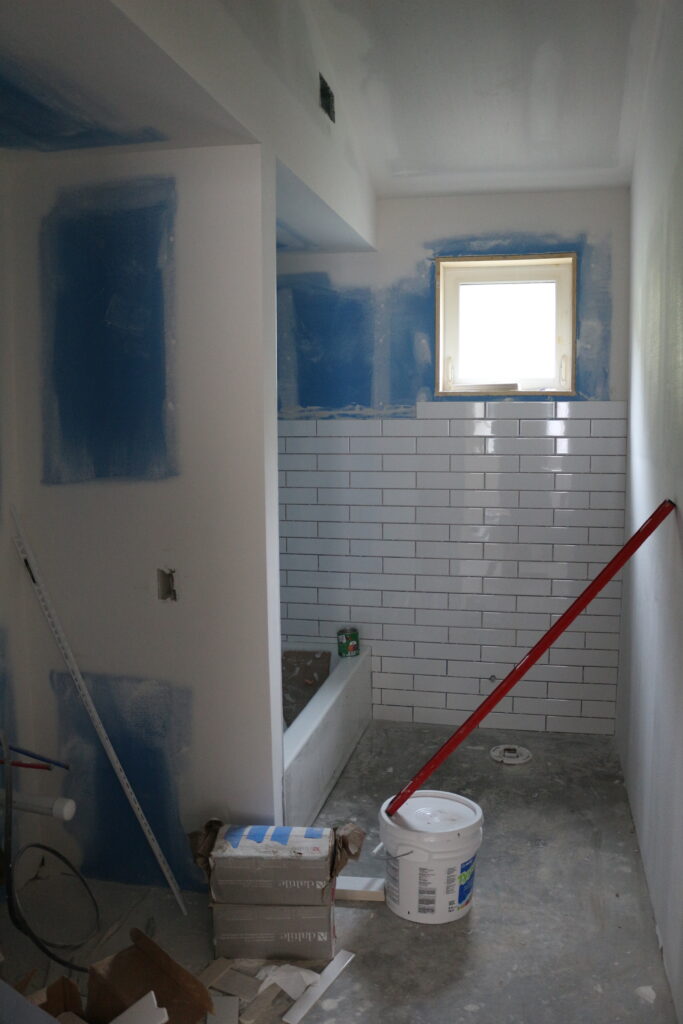
The house is uniquely designed to use space efficiently. The living area has high ceilings and plenty of natural light, leading to the main bedroom and full bathroom at the back of the house. A half bathroom is situated between the two spare bedrooms at the front of the house.
“If you think about it, the whole house was designed around the center section,” Williams said. “All of the mechanical stuff that makes the house energy efficient and work wonderfully is all up in this center area, and then to really maximize the space instead of closets, the students at K-State designed these center storage units.”
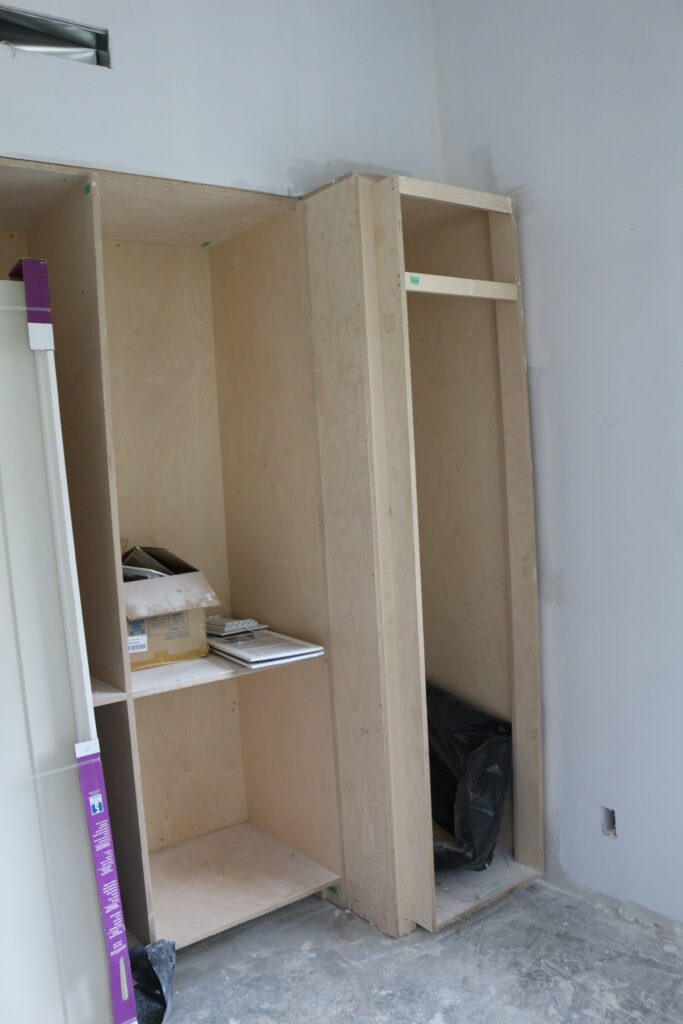
The built-in wardrobes in each of the three bedrooms will provide the home’s non-traditional storage space along the interior wall. The attic space above the bedrooms is used for all of the mechanical and electrical equipment, aside from plumbing below the house. This allows for more efficient heating and cooling of the house.
Off the kitchen, builders have prepared to pour a concrete patio and driveway leading to the alley and shaded backyard.
The architects and engineers are working up projections for utility estimates based on current utility costs, insulation and other factors. Wagner said the project will be audited for energy efficiency and related costs so that they will know what to expect for similar future builds.
Some residents of Northeast have speculated that the house, which was listed for $125,000, was overpriced for the street.
“The reality is that new construction costs money… It’s the difference between rehabbing an existing property and building brand new,” Wagner said. “We’re not making money on this, we’re really not. It’s really the cost of building, it’s the cost of being able to deliver the sorts of appliances that help you on the back end.”
While many focus on the purchase price, Wagner encouraged them to consider the costs to keep it affordable once the new owner moves in. He said in the long run, living in this house will be cheaper than many apartments of comparable size in Northeast.
Wagner said it will also most likely not raise property taxes of immediate neighbors because it is not considered a comparable property, but he hopes it will encourage others on the street to take care of what they have.
“Because we used CDGB (Community Development Block Grant) Home funds, we are required to sell this to someone who makes 80% or below the Average Median Income for the city,” Wagner said. “That will be dependent upon the number of members of the family.”
Mattie Rhodes has found a buyer for the house, an individual who is hoping to move closer to family in the Northeast, and they expect to close this week. Wagner said she’s looking forward to planting in the community garden across the street and volunteering with Mattie Rhodes.
“The other requirement is that for the next 15 years, that same requirement is on the owner of this house,” Wagner said. “The next buyer also has to income qualify to be able to purchase the house, so that’s all part of the requirements that we have to make sure that we keep that level of affordability.”
The home will also have tax abatement through the Land Clearance Redevelopment Agency (LCRA), meaning that for 10 years, the property tax owed will be based on the value of the land, not on the house.
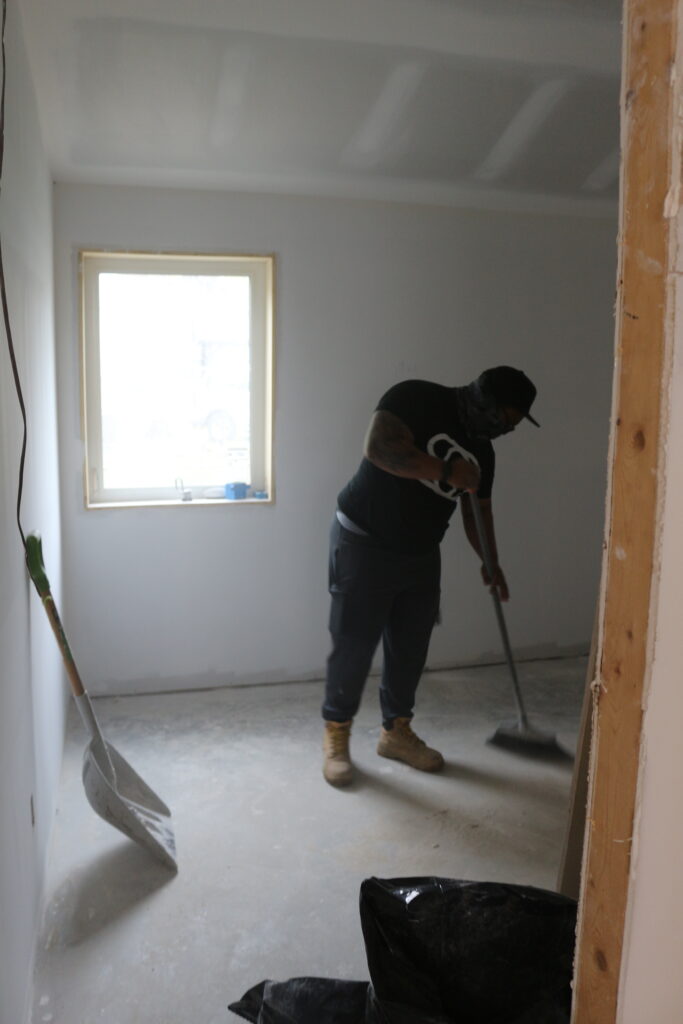
Keenan Gladd-Brown, Project Coordinator for CoBuild, was on site Friday labeling walls to be painted. He hopes to one day use the knowledge he is learning with CoBuild to build affordable tiny homes on vacant lots.
The buyer now has the opportunity to give input on final details like paint colors, tile, cabinets and other design choices.
“It really is ending up with kind of a custom home feel on the back end of it for the buyer, which is a really exciting aspect of the project,” Williams said.
Although Mattie Rhodes began focusing efforts toward expanding affordable housing several years ago, this is the first new build the organization has done. The property was purchased from the Land Bank with a vacant house on it in the mid-2010’s, and the house was later demolished.
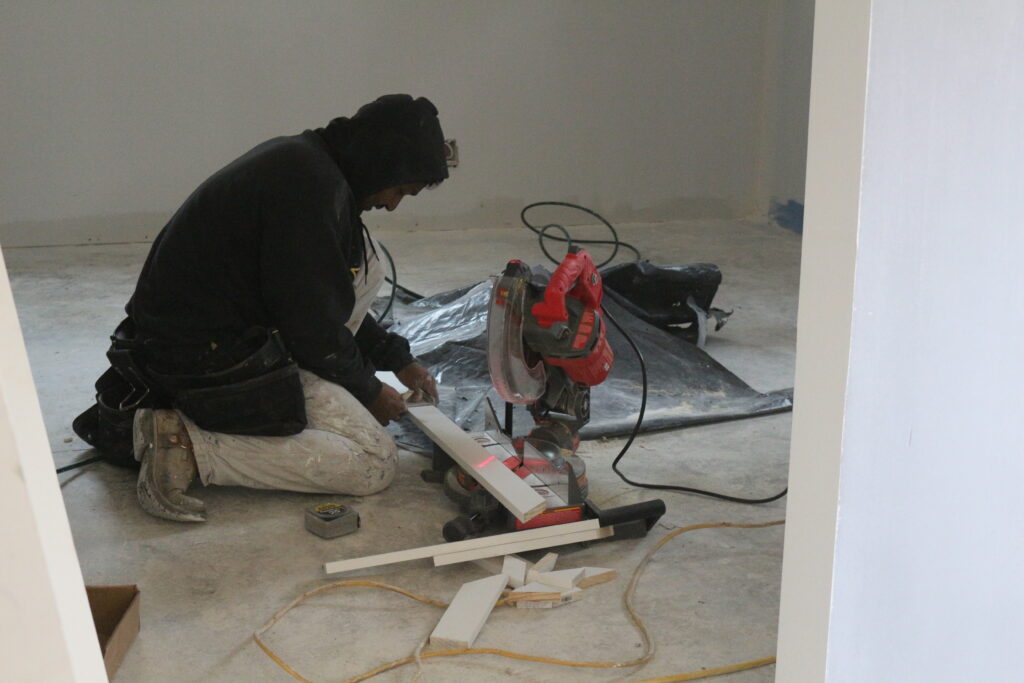
“We’ve got a lot of vacant lots here, and as I always say, ‘affordable housing ain’t cheap,’” Wagner said. “It is more expensive than rehabbing for sure, but in comparison to building a new house anywhere, this is one of the cheapest builds you’ll find in the city. Until someone decides to totally subsidize it, we price it at a rate that is still very affordable.”
In many ways, this house was an experiment. Wagner said Mattie Rhodes’ long-term plan is to approach creating affordable housing through new builds, rehabilitation of existing houses, and eventually multi-family housing. To save on cost and time, Wagner said it’s important to get to a place where they can work on more than one at a time, while also being cautious not to gentrify the neighborhoods or push out current residents.
CoBuild General Contractor Tate Williams, a Pendleton Heights resident, works with non-profit Emerging Builders, a program that provides on-the-job construction training and educational opportunities for women and people of color (POC), and RK Contractors, which focuses on hiring Middle Eastern refugees and immigrants.
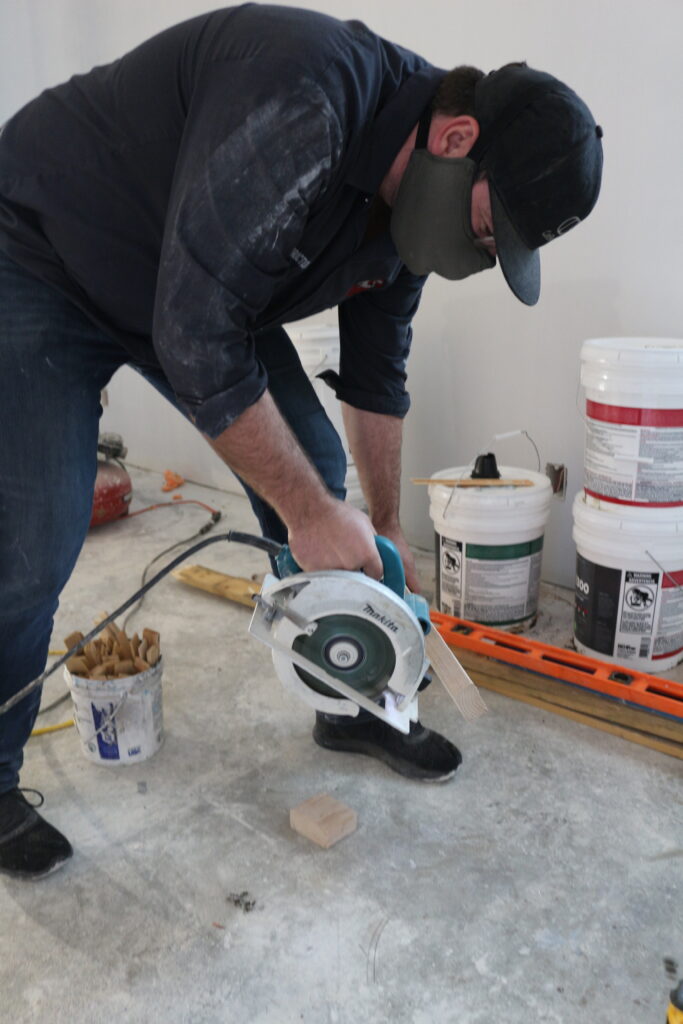
Many of the apprentices who helped lay the foundation are still involved in the project today, meaning they had the unique opportunity to have exposure to the entire construction process.
“It makes it tangible,” Williams said. “They’ve at least walked through the experience of taking an empty lot to putting a house on it… It’s removed the impossibility factor because they’ve now witnessed it. We’ve inspired the potential, and we’ve also helped build portfolios.”
Williams wants other contractors to know they can do similar things for affordable housing, despite the learning curve and extra hoops they have to jump through.
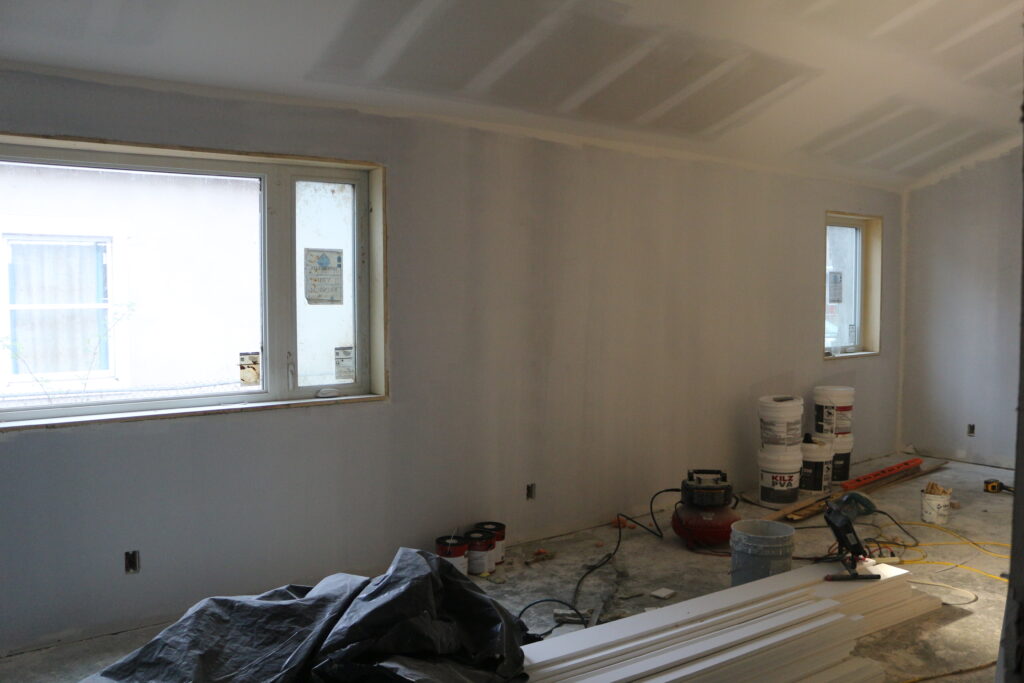
“My hope is that I am able to inspire other contractors to see the value in this type of work,” Williams said. “There’s a missing connection to the destination, to work through the muck that you don’t have to deal with in the suburbs or with another developer, you have to believe in the end goal, which is that every person deserves a beautiful, quality, sound home to live in.”
Mattie Rhodes plans to use the master plans designed by K-State students to replicate this on other vacant lots, because Wagner knows there are buyers already lining up.
“People who we can put through career and job training are the very same people who can then invest in the neighborhood that they live in, whether that is to buy a house, or improve their house, or to buy a car, or to put their children through school,” Wagner said.
Mattie Rhodes offers financial education classes, and the two main goals that people have coming in seem to be home ownership or starting their own business. As Mattie Rhodes also ventures into offering job training programming this year, it has been an important aspect of their first affordable housing project.
“I think Northeast is going to continue to attract people into it, but there’s clearly a lot of people already here that want to be in a position to have a house like this one, and we can’t wait to build them and get them in there,” Wagner said.


